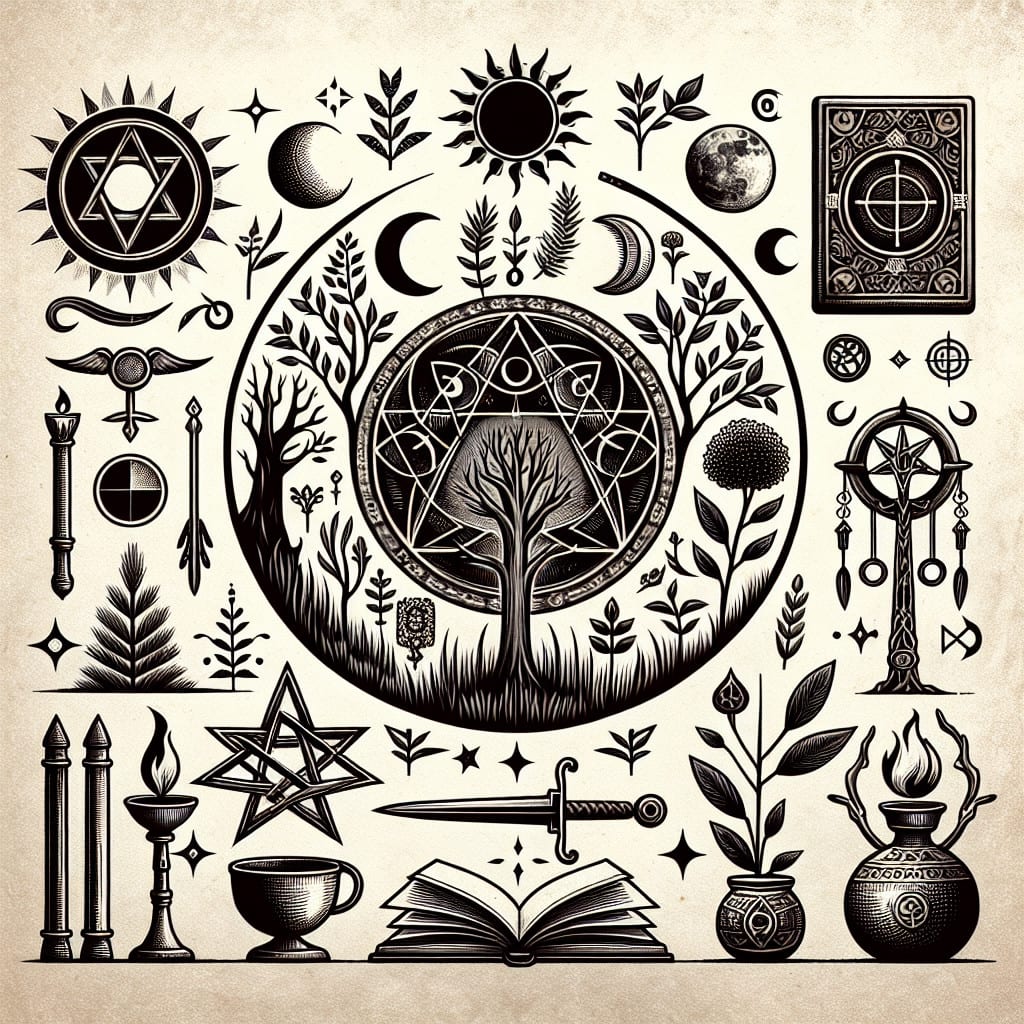Paganism is an ancient spiritual path that dates back thousands of years and is still practiced around the world today. It is a broad term that refers to a variety of nature-based spiritual belief systems, most of which share a reverence for the natural world and its cycles. This article will provide an in-depth definition of paganism and its many diverse forms. It will also explore the core principles and beliefs of paganism, as well as its practices, rituals and holidays.
Paganism is a broad term for various nature-based spiritual and religious practices. Though the term is broad, the majority of pagans share a reverence for nature, a belief in the potentiality of magic, and a respect for the Divine in all things. Paganism is often depicted as an “earth-based” religion, though some pagans may find this label too limiting.
What are the origins of paganism?
The origins of paganism are hard to pinpoint, as it is an umbrella term for a variety of religious and spiritual practices. Many pagans attribute the beginnings of the religion to ancient civilizations, especially the Celts and the Greeks. The Greeks believed in the power of nature and of gods, goddesses, and spirits. The Celts had a strong connection to the land and its spiritual energies, as well as a reverence for divination and shamanic healing. Today, many pagans follow a mixture of ancient traditions that draw from both Greek and Celtic beliefs.
What is the main belief of paganism?
The main belief of paganism is that all of nature is sacred, and that all living things are connected. Pagans believe in a holistic approach to life, where physical and spiritual aspects of life are intertwined and must be respected and honored. This belief is often expressed through rituals and ceremonies that honor the Earth, the seasons, and the cycles of life. Pagans also believe in the power of magic, and many practice various forms of divination and spell work.
What are the different forms of paganism?
Paganism is an umbrella term for a variety of spiritual and religious practices. Some of the most popular forms of paganism include Wicca, Druidry, Heathenry, Shamanism, and Witchcraft. Each of these practices has its own distinct approach to spirituality and religious practice, but all share the same core beliefs of honoring the Earth and the Divine, and the potentiality of magic. Some pagans follow a tradition that has been handed down through generations, while others practice an eclectic form of paganism, drawing from various sources.
What are some common rituals and practices of paganism?
The rituals and practices of paganism vary depending on the type of paganism being practiced. However, some of the most common rituals and practices include honoring the cycles of the seasons and the phases of the moon, making offerings to deities and spirits, creating sacred spaces and altars, and performing spells and divination. Pagans may also practice meditation, energy work, and other forms of spiritual healing. The rituals and practices of paganism are generally designed to bring the practitioner into alignment with the natural world, and to foster a deeper connection to the Divine.
What is the difference between paganism and other religions?
The main difference between paganism and other religions is that paganism is not based on any single set of beliefs or teachings. Instead, it is an umbrella term for a variety of spiritual and religious practices that share the same core beliefs of honoring the Earth, the Divine, and the potentiality of magic. Paganism is also unique in that it is not based on any particular scripture or dogma, and is instead based on the individual’s direct experience of the sacred. Paganism is also generally more inclusive than other religions, and welcomes all people regardless of their beliefs or backgrounds.
What is the significance of the pentacle in paganism?
The pentacle is a five-pointed star that is associated with many forms of paganism. The pentacle is seen as a symbol of protection and abundance, and is often used in rituals and spells. It is typically used to represent the elements of Earth, Air, Fire, Water, and Spirit. It is also seen as a symbol of balance between the physical and spiritual realms, and is often used to invoke the power of the Divine. The pentacle is also often used to represent the fivefold path, which is the path of knowledge, love, service, power, and wisdom.
In conclusion, Paganism is an umbrella term for a variety of spiritual and religious practices, beliefs, and traditions. It is an earth-based religion that honors the natural world and the cycles of life. Pagans believe in the interconnectedness of all living things and the importance of living in harmony with the natural world. Paganism is an incredibly diverse religion, and its practitioners have a wide range of beliefs and practices. Ultimately, what is important is that each person finds their own unique path and practice that resonates with them.





